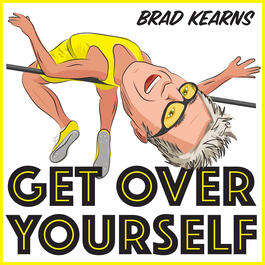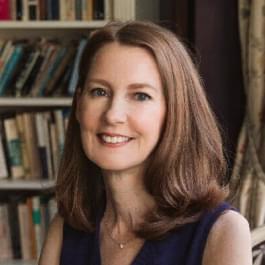
Gretchen Rubin: #1 Bestselling Author Talks About Decluttering, Honoring Your Personality Tendencies, Evolved Parenting, and Avoiding “Proclasticlearing”
What a tremendous honor to connect with mega-bestselling author and award-winning podcast host Gretchen Rubin. Gretchen writes about habits, happiness, and human nature. She is the author of The New York Times’ bestsellers The Happiness Project, Happier at Home, Better Than Before, 4 Tendencies, and her most recent book, Outer Order Inner Calm. I know there’s no way I am alone when I say I found The Four Tendencies to be a life changing book. A big takeaway is the importance of understanding yourself – understanding what your greatest values are, but also how to understand others and play to them. First, we talk about Gretchen’s latest book, Outer Order Inner Calm: Declutter and Organize to Make Room for Happiness. Gretchen has found that most people feel that when they have more control over all their possessions, they have more control over their life. Funnily enough, Gretchen’s sister is one of the rarer types who just doesn’t get bothered by clutter. But those who get very stressed out by messiness are often guilty of “procrasticlearing.” Gretchen coined this term to describe the act of procrastination by way of “productivity” – you decide to do a seemingly productive task, like cleaning out your pantry or your closet, vacuuming the floor, organizing your cookbooks in alphabetical order....instead of just doing the real, pressing, important task you’ve just been trying your hardest to avoid. I am sure you can recall a time or two (or ten!) in your past where you’ve chosen to do something that you could justify as “productive” a form of procrastination from the true tasks you’ve had at hand. Once you become aware of the hidden costs that come with having consistent clutter around, then it’s hard not to wonder how on earth people (including yourself) are ok with living like this. Gretchen’s book will help you decrease the stress in your life by decluttering your home and strictly sorting through your possessions. That might sound scary and overwhelming, especially if you’re a nostalgic person (or just suffering from hoarding tendencies), but Gretchen makes it easy: ask yourself three simple questions as you go through each item: Do I need it? Do I use it? Do I love it? This will help you quickly and efficiently eliminate the items you do not need (the very same items adding onto your piles of mess, therefore increasing your stress). Most people’s days are jam-packed – work, hobbies, family and friends, and clearing clutter can easily wind up being the last item on your never-ending to-do list. Once you’ve managed to catch up with clearing up, you’ve got to stay consistent with keeping up. It’s so much easier to keep up a clean environment than tackle huge piles that need to be seriously sorted through. It’s the difference between waiting for weeks to do all your laundry versus doing a little bit each week. By doing small things to keep your environment clutter-free, keeping up will become habit: you will find yourself automatically putting books, dishes, shoes, various household items, all back in their rightful place, because you’ve ingrained this habit of keeping up into your daily practice. At one point I ask Gretchen, ‘what should I do about my tendency?’ only to discover that I am not the first person to ask her about this. Gretchen says a lot of people actually wish they were in another tendency category – obligers wanting to behave more like rebels, upholders dreaming of acting more like a questioner. However, that is what The Four Tendencies is all about. We are all equipped with our own unique gifts – our own style of doing things and communicating ideas, and that is where your strength lies: in the fact that no one is you. Your power is rooted in your unique abilities. A rebel is never going to act like an upholder, but you wouldn’t want them to anyways! A rebel has their own specific gifts to offer, just as an upholder or an obliger does as well. To expect either of them to act like the other would be unrealistic. You can only be yourself, and as Gretchen points out during our discussion about what the key to happiness is, everyone is different. People are inspired by and satisfied by different things, and the definition of “happiness” depends on the individual defining it. Like Gretchen said, happiness means something different for everyone, and some people (like her sister) don’t get affected the same way other people are by clutter! Reading Outer Order Inner Calm will give you the tools you need to recognize, and then eliminate what is no longer serving you in your life, and The Four Tendencies will help you identify specific elements of your innate personality so you can play to your strengths and learn how to work with your weaknesses. It’s all about empowering yourself through self-awareness of how well you truly understand your innate nature (your tendency). As Gretchen says, “Is it possible to really change your inborn, hardwired genetically programmed personality? I don’t think so, or if it is – it is very, very difficult. But it is very easy to change your circumstances.” Gretchen’s advice for anyone struggling with any aspect of their tendency is not to try to be like another tendency, but to do it things your own way. If you’re a rebel, you’re going to have difficulty following schedules and rules, but if you need to do something that involves some strict limitations, then work with those constraints in your signature, rebel way. We all have our own unique gifts, and Gretchen’s teachings help you thrive and live your best life through empowering self-awareness. TIMESTAMPS: There is disproportionate yields to the art of tidying up. [07:32] People differ in what their idea of good order is. [10:00] Is procratic clearing getting in your way to what really needs to be done? [14:53] Changing venues is a good strategy to avoid procrastination. [17:18] Is there a key to happiness? [22:28] The kinds of things that make one person happy might not make another happy. [25:58] It's very risky for parents to overly intervene in children's career choices. [29:31] The first step to cluttering is getting rid of stuff that really doesn’t need to be there. [33:21] The one-minute rule is a good one to follow. Can I do this in one minute instead of postponing it? [35:44] There are some simplifying routines that can help if clutter bothers you. [38:40] We need to think about whether it is our own problem or someone else’s. If it belongs to you, you take care of it. [40:21] The four tendencies are upholders, questioners, obligers, and rebels. [45:42] Support this podcast at — https://redcircle.com/the-get-over-yourself-podcast/donations Advertising Inquiries: https://redcircle.com/brands See omnystudio.com/listener for privacy information. See omnystudio.com/listener for privacy information.
From "The B.rad Podcast"




Comments
Add comment Feedback